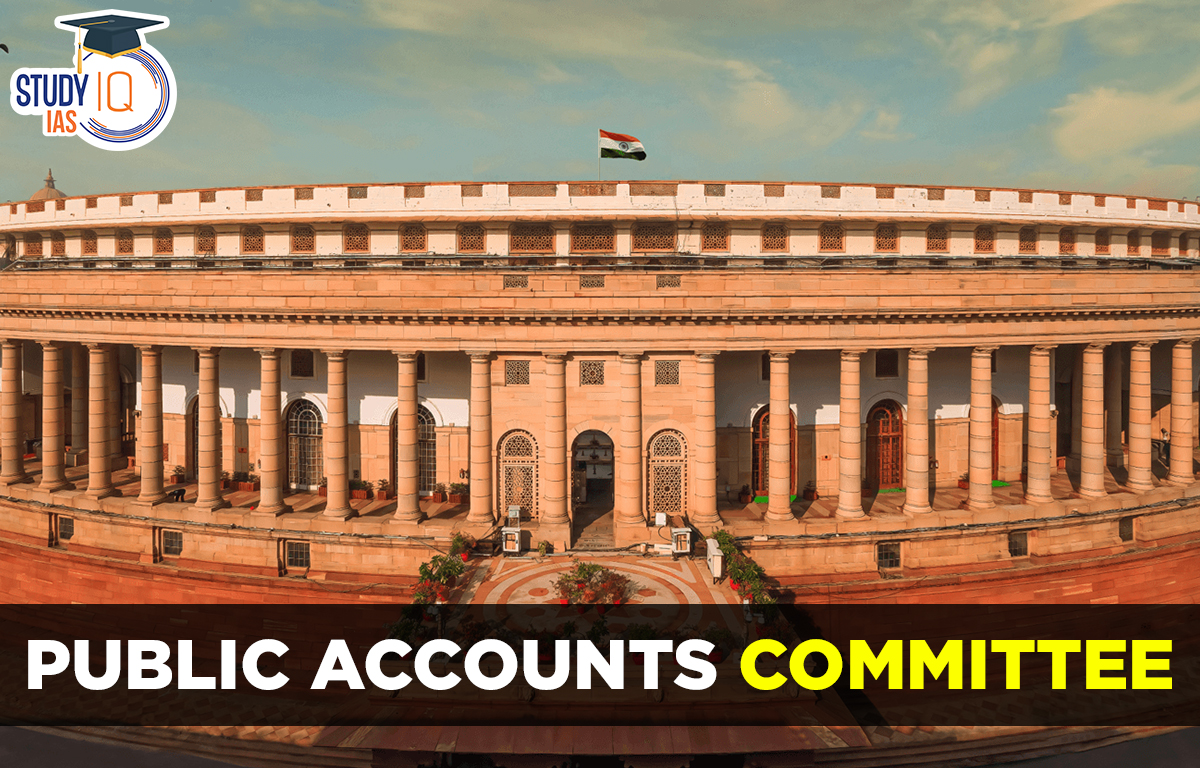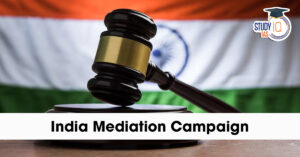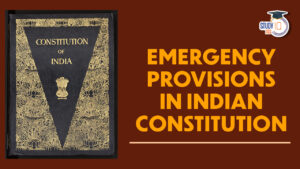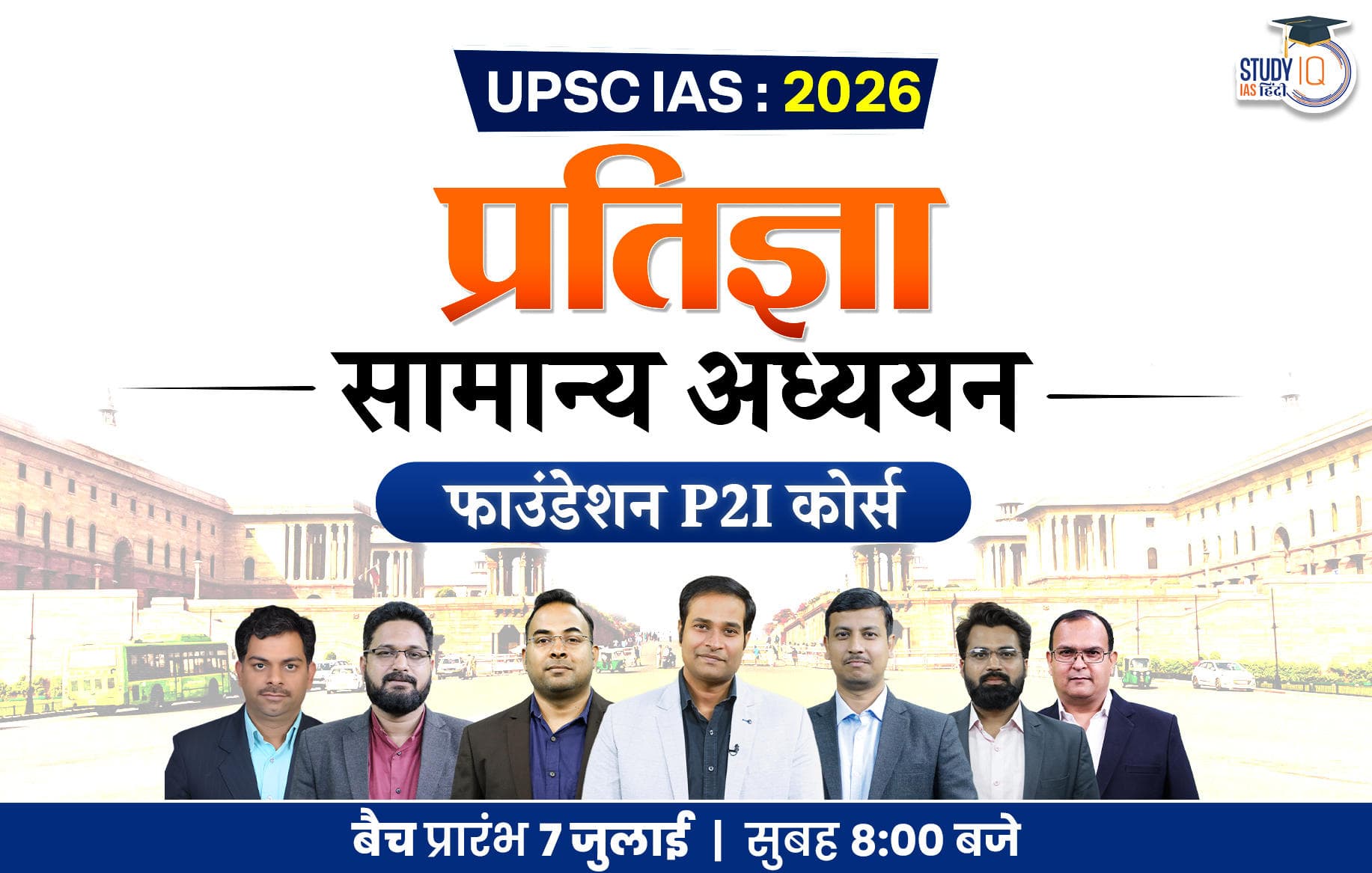Table of Contents
Public Accounts Committee (PAC)
The Public Accounts Committee (PAC) was established as a committee of Parliamentarians. Its goal is to examine the finances of the Indian government. One of India’s earliest parliamentary committees is PAC Committee. It was originally codified as the Montford Reforms in the Government of India Act, 1919. This group is also referred to as the government spending watchdog.
| Public Accounts Committee (PAC) | |
| Origin |
|
| Composition | 22 members (15 from Lok Sabha + 7 from Rajya Sabha) |
| Election method | Members of the committee are elected through a system of proportional representation by means of a single transferable vote. |
| Chairman |
|
| Tenure | 1 Year (Chairman & Members) |
| Significance | Essential for ensuring executive accountability to the people and enforcing parliamentary oversight over the government’s actions. |
The Public Accounts Committee is an important part of Indian Polity which an important subject in UPSC Syllabus. Students can also go for UPSC Mock Test to get more accuracy in their preparations.
Role of Public Accounts Committee (PAC)
The newly constituted Public Accounts Committee (PAC) has selected 161 subjects for examination during this year’s tenure based mostly on Comptroller and Auditor General (CAG) reports..
Key Subjects Chosen by the PAC
The PAC has selected 5 subjects suo motu:
- Reforms in the banking and insurance sectors.
- Review of the implementation of centrally sponsored welfare schemes.
- Policy measures underway for transition in the energy sector.
- Performance review of regulatory bodies established by Acts of Parliament.
- Levy and regulation of fees, tariffs, and user charges on public infrastructure and other public utilities.
Roles of PAC
- Examine the audit reports submitted by the Comptroller and Auditor General (CAG) and present its findings to Parliament.
- Acts as a watchdog over public finances by reviewing the audit reports on appropriation accounts and finance accounts.
- Scrutinises the appropriation accounts to ensure:
- Funds were legally available.
- A competent authority sanctioned their use.
- Procedures and rules were properly followed.
| Note |
|
Public Accounts Committee History
Following the Montague-Chelmsford Reforms, the Public Accounts Committee was established in 1921. Previously, the Executive Council’s Finance Member served as the Committee’s chairman.
The Committee on Public Accounts underwent a significant transformation after the Indian Constitution entered into force on January 26, 1950. The Committee then became a Parliamentary Committee that reported to the Lok Sabha Speaker and had an unofficial Chairman chosen by the Speaker from among the Lok Sabha Members elected to the Committee.
According to Rule 309(i) of the Rules of Procedure and Conduct of Business in the Lok Sabha, the Minister of Finance no longer serves on the Public Accounts Committee.
Public Accounts Committee Members
There are now 22 people on the Public Accounts Committee. 15 of these are Lok Sabha members, and the remaining 7 are Rajya Sabha members. The parliament’s members elect the Public Accounts Committee’s members each year. To ensure equal participation and representation of all parties in the committee, the election of the PAC members is based on the principle of proportional representation using a single transferable vote.
The members of this committee are in office for a year at a time. The chairman of the Public Accounts Committee is chosen by the Speaker of Lok Sabha, and he or she must be a committee member. Prior to 1966–1967, the chairman of the Public Accounts Committee belonged to the ruling party; however, since 1967, the committee’s chairman has come from the opposition party.
Public Accounts Committee Conditions for Membership
The Committee was made up of 15 people before 1954–1955, when Lok Sabha elected them from among its members. However, beginning in 1954–1955, 7 Rajya Sabha members are also affiliated with the Committee. The Speaker used to nominate a senior member of the ruling party as Chairman of the Committee until 1966–1967.
However, the Speaker appointed a Lok Sabha member of the opposition for the first time in 1967 to serve as the Committee’s Chairman. This behavior is still present today. Members of the Committee may serve for no more than one year at a time. A Minister cannot be elected to the Committee, and if a member of the Committee who has already been elected becomes a Minister, he or she loses their membership in the Committee as of the date of that appointment. The Speaker of the Lok Sabha selects the Chairman of the Committee from among the members of the Committee.
Functions of PAC
- The Public Accounts Committee’s responsibility is to examine the annual audit reports that the CAG sends to the President of India for presentation to Parliament.
- The committee analyses the report based on a number of criteria, including legal and formal considerations to identify any technical inconsistencies and economy, prudence, wisdom, and propriety to identify instances of waste, losses, extravagance, corruption, inefficiency, and unnecessary expenditures.
- The committee examines whether the funds were actually used for the intended purpose. The committee assesses whether the expense description meets the standards set by the relevant authorities and ensures that the expenditures mentioned are entirely clear.
- The committee examines the financial statements of state organizations, business enterprises, and manufacturing endeavours.
- The CAG’s audits of autonomous and semi-autonomous organizations are also subject to scrutiny by the Public Accounts Committee.
- Every audit report from the CAG that relates to a receipt or a shop or book account is examined by the committee. The committee’s other duty is to carefully review any funds paid out for services during that fiscal year.
Public Accounts Committee Significance
Parliamentary Committees are smaller, cross-party groups of MPs from both Houses that work all year long. These smaller groups of MPs examine and discuss a variety of issues, bills, and the budgets for all the ministries. As Committee meetings take place all year round, they help make up for the lack of time on the House floor.
Parliament makes decisions on complicated issues, so it is necessary to have technical knowledge to comprehend these issues more fully. This is made possible by committees because they give members a venue to interact with subject matter experts and government representatives while they are still in school.
PAC’s Limitations
- Lack of Enforcement Mechanism: Although the PAC identifies irregularities in public expenditure, there are no mechanisms to enforce corrective actions.
- Post-Facto Examination: The PAC reviews government expenditure only after it has already been incurred, limiting its ability to prevent inefficiencies.
- Advisory Nature of Recommendations: The PAC’s recommendations are advisory and not binding on the government, reducing its influence on immediate corrective action.
- No Mandate to Examine Policy: The PAC lacks the authority to examine government policies in a broader sense, restricting its role to the review of financial matters.
Conclusion
While the PAC lacks direct enforcement power, its role in scrutinising public expenditure and highlighting inefficiencies creates significant public pressure. This compels the government to address shortcomings in its spending and policy-making to retain public trust. Thus, the PAC plays a vital indirect role in upholding the accountability of the executive to the people.


 Indian Secularism: Constitutional Provis...
Indian Secularism: Constitutional Provis...
 India Mediation Campaign, Objectives, Pr...
India Mediation Campaign, Objectives, Pr...
 Emergency Provisions in Indian Constitut...
Emergency Provisions in Indian Constitut...





















